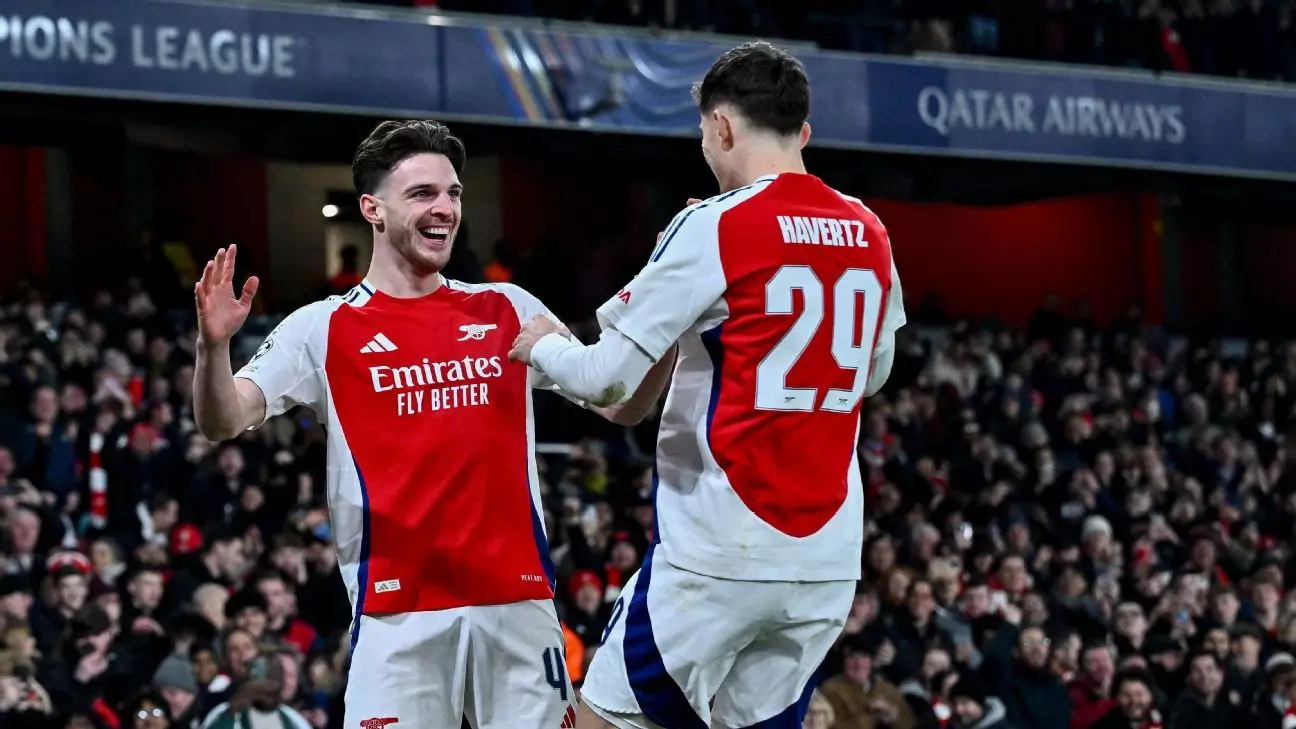Arsenal’s recent 3-0 triumph over Dinamo Zagreb has sparked discussions not only regarding the match but also about the new format of the UEFA Champions League. The modification from eight groups of four teams to a single, extensive 36-team league has raised eyebrows at first, but midfielder Declan Rice has weighed in with his approval, stating that it has been “really interesting.” This fresh layout offers clubs a chance to engage with diverse opponents, promoting a variety of competitive encounters. Rice’s enthusiastic endorsement signals a potential shift in player sentiment towards this innovative structure, as they adapt to new gameplay dynamics.
After their victory against Zagreb, Arsenal’s position in the group stage is looking increasingly secure. With 16 points and a strong third-place ranking, they appear to be well on their way to clinching a spot in the knockout rounds. This achievement, characterized by smart tactical play and robust defense, suggests a promising future for the club in European competition. Manager Mikel Arteta, however, exercises caution. Despite the favorable standings, he remains grounded, emphasizing that their qualification is not yet confirmed. This tempered approach reflects Arteta’s keen awareness of the unpredictable nature of football, where complacency can be perilous.
The match showcased a solid team performance, marked by an impressive collective effort. Notable contributions came from Kai Havertz, who netted his 14th goal of the season, and Martin Ødegaard, who scored a late goal to seal the win. Arteta expressed satisfaction with the team’s ability to maintain a clean sheet, emphasizing the importance of defensive solidity. This match not only highlights Arsenal’s offensive prowess but also their growing maturity as a well-rounded team capable of executing strategies effectively. The absence of any shots on target from the opposition was a testament to their defensive organization, reinforcing the club’s aspirations in the tournament.
Looking ahead, the prospect of avoiding a Champions League playoff might grant the squad a much-needed winter break, as pointed out by Arteta. With the FA Cup out of Arsenal’s reach this season, the team has an opportunity to rest and recharge—both physically and mentally. A brief respite could facilitate an assessment of their performance so far and allow for tactical refinements ahead of future challenges. Resting players and allowing some to recover adds a strategic layer to their season, which is essential given the demands of high-level football.
Arsenal’s successful outing against Dinamo Zagreb serves as a clear indication of their ambitions in the revamped Champions League format. With a solid approach, strategic foresight, and a unified team spirit, they are poised to navigate the complexities of this new competition landscape. As players and management embrace these challenges, the future looks bright for Arsenal in their quest for European glory, especially as they adapt to this new competitive framework with enthusiasm and resilience.

